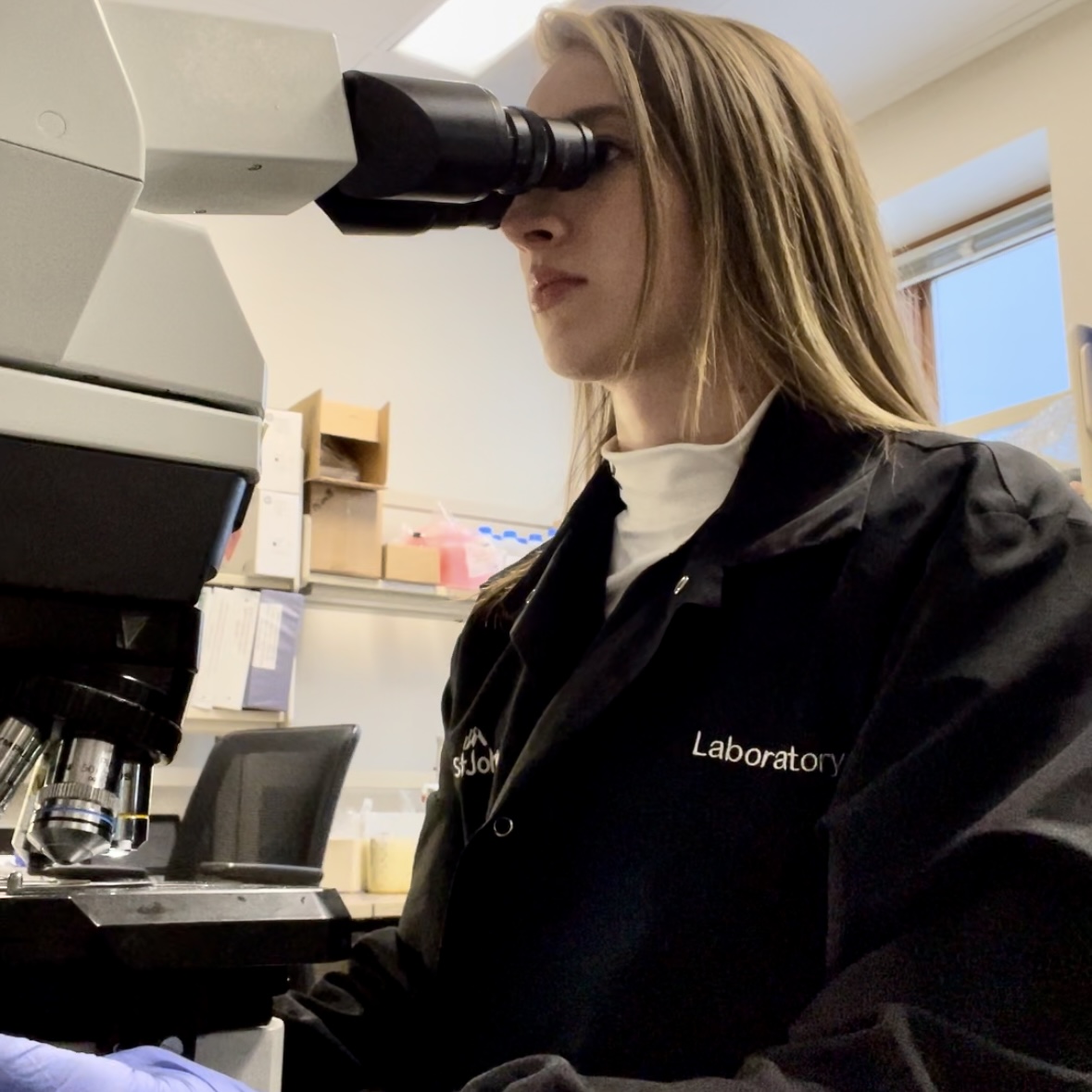
One of the most often asked questions I get from family, friends, and strangers is- “What exactly do you do at work?”. And honestly, this is a tough question to answer. I’ve found that it’s particularly difficult to describe a day in the life of a med tech without simplifying it so much it’s insulting their intelligence OR, spoken in scientific terms that – whoosh – fly right over the person’s head leaving them confused and overwhelmed with medical jargon. So, I’ve broken it down into 2 categories: the short answer and the long answer.
Short Answer
The short answer I seem to gravitate towards giving is- If you’ve ever had a specimen collected at the doctor’s office (blood, urine, etc.), and it was sent off to be tested, the results are most likely courtesy of a med tech. Think lab coats, gloves, and microscopes.



Long Answer
Med techs are the “behind the scenes” hospital workers. You can usually find them in the windowless lab (only the luckiest of hospitals have windows in their labs), donned in lab coats and gloves, testing a number of patient samples. Because med techs do the testing, they’re the first to know results. These broadly range from minor illnesses- think the flu or strep throat- all the way to life altering diagnoses- such as Leukemia. Typically, there are 2 types of med techs: generalists and microbiologists.
Generalists
Generalists are the med techs typically focusing on what we call the ‘core lab’. The core lab of most hospitals includes the hematology, chemistry, and blood bank departments. They spend their days reading slides at the microscope, crossmatching and giving blood for transfusions, and performing a number of tests on blood, urine, and other body fluids. If you’ve ever had a CBC, CMP, drug screen, or urinalysis, it was most likely performed by a generalist.



Microbiologists
Microbiologists however, are more specialized. Microbiologists perform the set-up and reading of cultures, read a number of different slides under the microscope, and perform molecular PCR testing- including strep, Flu, COVID, and more.
Each culture is essentially one big puzzle in which the tech has to take into account many different variables to provide the best patient care. After the cultures are incubated for 24 hours, they’re evaluated for growth of yeast and bacteria. Looking at culture site, what (and how much) organisms are growing, patient age, location (are they hospitalized?), medical history, antibiotic use, and many other factors, the microbiologist decides how to proceed with the culture. Is this normal flora? Is it a pathogen? A little bit of both??



It’s important to remember that not all bacterial growth is bad. Your body needs normal flora to fight infections and keep your body in a healthy state. That yogurt in your fridge that says ‘active cultures’? Loaded with good bacteria. Those probiotics that you TOTALLY take every day like you’re supposed to? Full of healthy, necessary, normal flora bacteria. BUT, if your normal microbiota is thrown off, there is an overgrowth of bad bacteria, or bacteria somehow finds it’s way somewhere it’s not supposed to be – i.e., bloodstream, CSF, joints- you’re going to need way more than that mixed berry yogurt to feel better.
If the microbiologist determines there’s an infection present, they’ll then use many different methods of testing to determine the identification of the organism and determine if susceptibility testing is necessary. This just means the tech will test the organism against different antibiotics to determine if the organism(s) are sensitive or resistant to the antibiotic- i.e., Will the medicine do it’s job and kill the microorganisms causing the infection?
This was just a brief description of what goes on in a med tech’s work day. Hopefully you found it helpful in bettering your understanding of what exactly a med tech does! If you have any questions, feel free to drop them in the comments, and don’t forget to subscribe so you don’t miss out on any new posts!
Sign up for my newsletter down below to be notified when new posts go live!